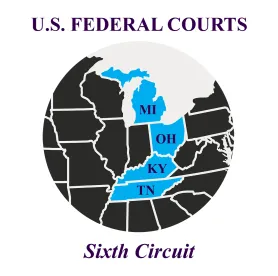The Kentucky Billboard Act requires a permit for billboards that advertise off-site activities—but no permit is required for on-site billboard advertising. Lion’s Den, an “adult superstore” that sought to advertise to interstate drivers with a billboard on a neighbor’s property, challenged the law as a violation of its rights under the First and Fourteenth Amendments. The district court agreed with Lion’s Den and enjoined enforcement of the Act. Recently, the Sixth Circuit affirmed.
Judge Sutton’s opinion for the court proceeded from the proposition that government regulation of speech based on its content is constitutional only if the regulation satisfies strict scrutiny. The on-site/off-site distinction is content-based: to know which rules apply to a billboard, one has to know the message on the billboard.
And the Act could not satisfy strict scrutiny. Under circuit precedent, Kentucky’s proffered interests in safety and aesthetics did not qualify as compelling, but “even if these interests sufficed in the abstract, the Act leaves untouched other billboards with similar qualities,” and underinclusive laws are not narrowly tailored.
The court rejected Kentucky’s argument that only intermediate scrutiny for commercial speech was appropriate. Although Lion’s Den’s billboard did contain commercial speech, the Act treated commercial and non-commercial speech alike. Finally, the court noted that in a 2020 decision, the Fifth Circuit had reached essentially the same conclusions “that a billboard law like this one must satisfy strict scrutiny” and that “this kind of law fails the test.”
For whatever reason, on-site/off-site distinctions are somewhat common in state and municipal laws regulating billboards. The Sixth Circuit’s decision will be helpful to those bringing First Amendment challenges to such laws.




 />i
/>i
